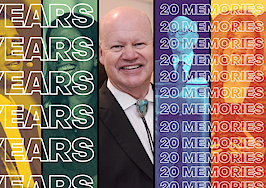Real estate agents and investors alike are concerned with one thing: closing on their next sale. But the truth is, the job isn’t always as glamorous as it looks on television.
There is far more that goes into being an agent or broker than meets the eye. If you’re considering becoming a real estate agent, here’s what you’ll want to know.
You’ll need to build relationships
As a part of your Realtor toolbelt, what’ll set you apart from your competition is your contact list. You’ll want to start building relationships with contractors for your clients who will be in need of home repairs and improvements. You’ll want to be able to introduce potential buyers to trustworthy lenders. You’ll need to know home inspectors, closing attorneys and title companies for various aspects of your transactions.
All of these people will be a helpful asset for your clients since you’ll have a network of trusted professionals they can work with.
You’ll need startup money
While getting your real estate license is one of the cheaper options for making a career change, you still need financial backing to get your business up and running. Start-up expenses will include things like paying for your website, marketing collateral and real estate association fees.
Many of your expenses will be tax write-offs, such as your regular office supplies and gas. However, if you’re not well-versed in accounting, you may want to consider adding a professional to your budget, too.
Networking is your money maker
Networking is one of the number one ways to find new clients. If you’re not a people person, you can still be a Realtor. However, you’re going to have a difficult time making connections with people who are in the market for a Realtor.
Don’t be alarmed if you’re introverted. You can take your networking skills to the digital world through social media. LinkedIn is filled with groups where you can engage in online conversations. The important part is taking those online relationships away from the screen and into the real world if you want to get more leads for your next open house.
Don’t expect to make much money at first
If you’ve been binge-watching Selling Sunset on Netflix and think you’re going to make millions becoming the next hottest real estate agent, think again. Making that kind of money takes time. Most agents make around 2.5 percent on every sale. If you sell a $300,000 house, you’ve made around $7,500.
This may sound like a lot of money for one sale but consider the work and time it took to make that sale. Not to mention, you don’t actually see any money until the closing goes through officially. It may be months before you actually have the money in your hands.
In order to make a standard $40,000 annual salary, you’ll need to sell at least one house a month. That’s before any expenses from open houses, gas and time.
Be willing to work under someone first
When you initially became a real estate agent, you were probably excited by the idea of being your own boss. It can happen in time. But first, be prepared to work under someone. This can be a great jumping-off point to learn the ropes and eventually branch out on your own. Plus, depending on the company, they may even pay for your real estate license.
You have to own your boundaries
Having a typical nine-to-five schedule doesn’t exist in real estate. Open houses are usually happening on the weekends. Deals are being closed at the final hour of 7 p.m. on a Tuesday. If you’re not careful, you could easily find yourself working seven days a week into all hours of the night to finalize the deal.
Setting boundaries and expectations with your clients from the beginning is vital. Let them know you aren’t available on certain days and times, but are able to be in touch within 24 business hours. Otherwise, they’ll assume you’re available at their beck and call.
This isn’t to deter you from going after becoming a real estate agent or broker. It’s about setting yourself up with realistic expectations. It requires building relationships, financial backing and a lot of patience.
Larry Alton is the CEO of Alton Enterprises in Olympia, Washington. Follow him on Twitter or connect with him on LinkedIn.












